
"Now is the time to rage. If not now, when?"
In 2020 director Toyoda was angry. Very angry. Angry about the pandemic. Angry about the wealthy and politicians. Angry about the Olympics. And especially angry about apathy toward the hell many people were living in. The Day of Destruction fiercely and poetically screamed that rage out.“Draw your sword now. If not it ain’t rock ‘n' roll.”
Seven years ago, a pulsating globular monster appeared deep in a mine. Since then, a plague of some sort had spread. In 2020 after the epidemic took the life of Kenichi’s sister, he attempted to self-mummify at the Mountain Resurrection-Wolf temple (the same one used in Wolf's Calling) believing his sacrifice would quell the epidemic.
“What defines a human. Prove it now.”
An earthquake set loose Kenichi’s inner rage which turned him into a demon.
“Humans possessed by demons are exorcised by humans, but maybe the exorcists themselves are demons”
Priest Jiro believed that destroying the monster was a fool’s task. Nature gave them the epidemic so the monster must be led onto the right path. Kenichi must be guided onto the right path as well.
“Price tags on lives fluttering in the wind”
The wealthy and elite hid in their fortresses, safe from human misery all while planning on how to make money during the event of the year-the 2020 Olympics.
“Give me your anger. I’ll respect it.” “We have a voice. Your own voice. SHOUT!”
The people cried out their pain and fears. A bloody, red Kenichi fell down on his knees in traffic screaming his grief and outrage.
“Everyone on Earth is a central prayer…We’re all in the same boat called Generation.”
Humans are the problem. Humans are the solution. The division after division after division must be faced. Would prayer or self-sacrifice cause others to change or would the first step be the hardest? Changing oneself. Eradicating the monster might not be possible---healing, and coexisting might be.
“Would self-restraint for 100 years be enough?”
Shot on a small budget in eight days, Toyoda got the most out of the beautiful mountain scenery and the actors. I have to wonder if he received permission for the shots in the streets as ordinary masked passersbys walked around Kenichi as if a man in bloody red clothes shrieking and kneeling in the crosswalk was completely normal. The music and sound effects were not always pleasing but they were fascinating and told much of the story as there was little dialogue.
“Hey, Siri. How much longer do I have to put up with this?”
If we live in hell with demons and people acting like demons, maybe the screaming is necessary to wake ourselves up. Shake off the apathy and change. The Day of Destruction with its loud music and release of pent up fury might have been what we all needed, especially during the first year of the pandemic with people struggling in so many ways and losing people to an invisible monster. This film won’t be for everyone to be sure. It's abstract with lots of religious symbolism and can be confusing at times. For the most part, I enjoyed its poetic and manic response to a nightmare much of the world shared.
23 February 2024
Was this review helpful to you?
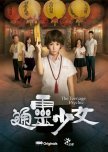
This review may contain spoilers
"If we could all be braver and accept what's different from us, the world would be a better place"
Teenage Psychic was a charming drama about Xiao Zhen, a sixteen-year-old medium who could communicate with the dead and worked in a temple. Due to her long nights performing her Holy Maiden duties she often ran late to school and fell asleep during class and in a coffin in between classes. Everything changed when Ah Le took her hand to help her as she climbed over the school wall to avoid the tardy monitors.Xiao Zhen’s father died when she was small and her mother works abroad. Her temple co-workers form an odd made family with her. Teacher Kim is her guardian and boss which can be awkward. Two comic relief helpers function as brothers or oddball cousins. Her relationship with Teacher Kim is complicated as he pushes Xiao Zhen to bring in customers and sell blessings to keep his struggling temple afloat. When Xiao Zhen meets Ah Le they form a connection that grows throughout the drama. Both are part of the drama club that is determining what sort of rendition they want to do of Romeo and Juliet. In each episode, Xiao Zhen helps to resolve conflicts both spiritual and earthly. Grief, bravery, lies for good and bad, reconciliation, gratitude for loved ones, and loss are all tackled. Xiao Zhen learns there is more to life than the dead as this teenager begins to engage in her own life and learn about love.
If Teenage Psychic had a drawback, it would be Guo Shu Yao’s acting. She often mumbled and pouted which could be distracting. Even more distracting was her disastrous haircut or wig. Maybe it was based on a manhwa, but for some reason they made her as unattractive as they possibly could. Her performances were stronger when she confidently performed her job communicating with the dead. Kent Tsai as Ah Le was a bottle of sunshine as he supported Xiao Zhen. The couple was cute together. The quirky drama club learned to put aside their fears of someone different and embrace Xiao Zhen as Ah Le had. Fear and intolerance of those who were different was addressed a couple of times for different characters. I wasn’t a huge fan of the play scenes, but that was a minor quibble.
Despite some of the acting issues, Teenage Psychic was mostly upbeat and entertaining as it focused on friendship, first love, and helping those in need—living or dead. Unfortunately, it took a turn that felt inorganic near the end, but still made it work. Through love Xiao Zhen discovered her smile and fought for balance in her life. This drama was flawed but I found it to be a relaxing watch.
25 January 2024
Was this review helpful to you?
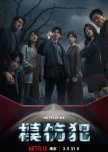
This review may contain spoilers
"The truth depends on who tells it best"
Copycat Killer was a copycat of numerous serial killer stories, set apart only by its relentless and gratuitous images of young women been tortured and murdered. Told in a time before social media, it tried to paint television news as bringing as much chaos to society as the brutal murders of imperfect victims.The drama utilized character types we’ve seen before. Chris Wu played the brilliant and moral prosecutor with a tragic past who is a thorn in everyone’s side for not tolerating any dishonesty and doggedly devoting his life to solving crimes. I found this confusing. Prosecutors in my country use the evidence police bring them to go to court and try the cases, they don’t dig up the evidence themselves. Cammy Chiang was the overly earnest young reporter disillusioned with the news media. The criminally underused Ko Chia Yen was Wu’s ex and a psychologist to help him make sense of the killers’ motivations. Ko is a gifted actress who had few scenes and none of which showed her range. Ruby Lin’s news anchor and producer had potential but the writing let her down as well. The villains ranged from mildly complex to laughable.
Copycat’s writing was uneven and the pacing slow. The first three episodes were more confusing than world building. Story lines that promised follow-ups were dropped. In the initial episode, a killer made the statement, “As long as the evil in your heart is triggered, anyone out there has the capacity to become a killer…Do you think there’s no evil in you?” The writing clumsily tried to push Wu’s prosecutor into that ethical corner. The news media was shown as morally bankrupt, uncaring of how much damage their coverage did to victims and their families as long as the ratings were high. Due to their race to air the most graphic or emotionally volatile content they became complicit in the killers’ crimes.
Aside from the writing and pacing issues, the main problem I had with this drama was its depiction of women. It tried to have it both ways-repeatedly show scantily clad women tortured and murdered in a titillating manner and then call out the media and society for blaming the victims. One character that was written for us to empathize with due to his loyalty and connection to main characters simply emphasized how unimportant young women’s lives were. The noble citizenry vilified the imperfect young women as being unworthy of justice and finding their killers a waste of tax payer money. The old myth of only the perfect victim, the chaste and obedient woman from a good family, being worthy of our sympathy or help was trotted out again and again. Perhaps Copycat was highlighting how victims and their families are often victimized as much by “righteous” people as the criminals who committed the heinous crimes but the lingering shots on chained women or extended scenes of gratuitously murdered women muddied those waters. The drama also briefly addressed the troubling old belief that the family of a perpetrator was as guilty as the criminal and not worthy of a happy life even if they had nothing to do with their relative’s actions.
Copycat Killer was a disturbing drama, not because it dealt with serial killers or had gory scenes, which it did, but because in trying to show society’s misogynistic and limited views of women they simply reinforced violence against women as a means of entertainment.
11/17/23
Was this review helpful to you?

This review may contain spoilers
More teeth but not more fun than the original
If you watched surprise hit, The Meg (2018), and go into The Meg 2 expecting Shakespeare, you get what you get. The first Meg film was so bad it was hilariously funny. The second film had better acting than the first and tried to have a stronger plot and slightly better science. Unfortunately, it made the cardinal sin of focusing too much on the humans and not enough on the monsters. Which was perplexing given there were more Megalodons and a dangerous menagerie of creatures from the mysterious depths of the ocean.Jason Statham returns as Jonas the Daredevil Diver who has turned into a fighter for eco-justice. Cai Shu Ya once again plays The Special Child, Mei Ying. This time Mei Ying is motherless and seems to be living at the Oceanic Institute either with Jonas or her uncle Jiu Ming. Jiu Ming (Wu Jing) is brilliant and reckless. He attempts to train a young Meg named Haiqi and is unafraid of being in the water with her. Cliff Curtis as Jonas' friend Mac and Page Kennedy as DJ (who can now swim and is no longer a terrible stereotype) are back as well. Along with new guy Jiu Ming, Melissanthi Mahut joins the good guys as Rigas, the fearless pilot.
This time instead of stumbling upon the Megs on their maiden voyage, the crew is studying the bottom of the Mariana Trench with better equipment and understanding of what lurks in the scientifically inexplicable dark…or so they believe. When they stumble upon a secret facility at the bottom of the ocean, they face betrayals and bad guys willing to do anything to protect their valuable secrets.
Statham made for a serviceable good guy who can face 90ft/27m ancient sharks without flinching and take down bad guys with his bare hands. Wu Jing was also shown as being super heroic and invincible. While I'm usually disappointed when an actor replaces an actress, Li Bing Bing struggled in her role as scientist and Mei Ying's mom in the first film. Wu Jing seemed to be enjoying his time running from prehistoric creatures and attacking a giant octopus. Curtis and Kennedy had more to do in this film instead of standing around wringing their hands. Mei Ying as the adventurous fourteen-year-old and Rigas as the tough talking pilot at least made viable female characters. The Big Bad and her minions were all but cartoon characters.
Once the critters in the water and on land showed up the movie became more interesting. Guys with guns, and not done well, really weren't. Were the confrontations between man and giant fish/octopus/freaky amphibians realistic? No. Were they fun? Most of the time, yes. There were a couple of very funny moments. The underwater scenes that should have been frightening and claustrophobic, weren't done particularly well. It was hard to care about the people who died because we didn't know them and didn't provide the jump factor either. My biggest complaint with the Megalodons was that they didn't show the size perspective very well. But there were plenty of fins and teeth. The monsters always appeared on the surface where there were revelers in the water to give the ginormous sharks and creatures plenty of people to choose from and the heroes lots of innocents to save. For those who are very squeamish the chomping wasn't too blood thirsty with a PG-13 rating.
It's hard to not compare the two movies. The Meg 2 had better acting and in some ways a better script than the original because while it also used stereotypes at least they weren't racist and sexist stereotypes. The drawback was that it took nearly a third of the movie to pick up traction. Jonas' fight with polluters in the opening scene had nothing to do with the rest of the movie except to give him a reason to pummel people. No one wants to watch someone talking on a microphone at the beginning of a giant shark movie either. Bring on the talent! For the genre, TM2 wasn't bad, if you watched Big Octopus you'll know what I'm talking about. Those who enjoyed The Meg may enjoy this one as well. If your tolerance for clichés, stilted dialogue, and people being chomped on by creatures is low, better to avoid this one. The Meg 2 may not have been an ex-squid-it Shakespeare Underwater, yet for a ridiculous movie about Megalodons, it wasn't carp either.
10/1/23
Was this review helpful to you?

This review may contain spoilers
A dream is a wish your heart makes...
Rainless Love in a Godless Land was an ambitious Taiwanese drama that wove together romance, Amis myths, and mind-bending thoughts on truth and reality, memory and emotion. On top of all that the drama brought home humans' responsibility for the blessings of the Earth and our place in stewardship of the environment.*No big spoilers*
"The end of the world is silent. It creeps up on you, you just don't notice."
Orad, the messenger of the chief god Kakarayan, is also the god of rain. He is helping to gather the Kawas, basically spirits of blessings, to send them back to the spiritual realm. Kakarayan is withdrawing his blessing from the planet which will result in a rainless Armageddon. Tien Ti, a local tour guide, crosses paths with Orad and for what turns out to not be the first time. Her fate and the beginning of the world's end are tied together. When Orad chooses free will over predestination it throws the Bureau of Corrections into crisis management mode.
"Behind every lie is a wish waiting to come true."
I will admit to liking the story more than the characters at times. Although there were a few heartfelt moments, much of the more meaningful romance was shown through flashbacks. A couple of the kisses were the guppy kind with eyes open and lips barely touching which felt awkward given Tien Ti's age and romantic history. Because she wasn't invested in the romance I found it hard to invest in it. Tien Ti often treated Orad hostilely, as more of a servant to do her bidding than a possible love interest. Orad kept his emotions close to his vest until he was truly faced with making every day choices that flustered him. Tien Ti would rail against being treated as special and then turn around and ask for special favors. When she was given a taste of power, she found it to be a more complicated thing than she first realized.
"What you see is the deity's will and what god sees as the truth."
Toam, goddess of the cloud, was one of the more complex characters and Alice Ko was magnificent as the morally ambiguous spirit. I found her far more compelling than Tien Ti and a more stylish dresser, too. Fali, head of the Bureau of Corrections, was another character who waffled between good and selfish. A lonely child who had been alone too long, he set into motion many of the characters' actions. Pu Hui was a fun sidekick for Orad though he was a terrible husband.
"When a lie is exposed, what happens to the lie?"
Orad and the Kawas Yaka found out that free will and making your own choices can lead you where you might or might not want to end up. There is a price to pay for freedom. Tien Ti struggled to have free will and make her own choices to alter her fate and the fate of the world. Other times, she was willing to give in to predestination. The drama also showed how emotions and memories are tied together.
"What I wish to see will become what you shall see."
I loved the OST for this drama. I thought the music fit the variety of moods perfectly and truly enjoyed the songs and background music. The drawback for me other than the subdued romance, were the travel office scenes. I didn't mind them at first when they were world building, but as the apocalypse was beginning it seemed surreal to think people were going to want to travel as the water began to dry up and pestilence hit. The use of flashbacks felt repetitive and overused at times. Tien Ti's mood swings could be exhausting as well.
"You are a wish I prayed for"
What is the difference between a lie and a wish? A lie has no future, but a wish might. What is real and what is a dream? Even scientists say it's possible our reality may be an illusion so is it really a lie if we perceive it to be real? Or is it simply a wish manifested? Rainless Love in a Godless Land twisted and turned through myth and perceived reality. I bought into the wish and the lie, hoping that both had happy endings.
9/4/23
Was this review helpful to you?

This review may contain spoilers
50 First Dates without the comedy
Silent Rain was like 50 First Dates but without the comedy. Yukisuke and Koyomi found each other and then found themselves in a life neither could have ever imagined. The film showed the everyday moments that build a relationship, it also showed how lack of communication and not taking pre-emptive action could cause emotional hardships.Yukisuke visits Koyomi's taiyaki stall each day as much to catch a glimpse of her as to enjoy the tasty treat. When Yukisuke helps her deal with a drunk customer a barrier is broken and the two gradually become closer. Fate is not that kind in a Japanese romance and after spending a strange evening together stalking a customer, Koyomi is injured on the way home. After two weeks in a coma, she awakens with all of her long-term memories intact though her short-term memory is damaged. Each day the previous day is wiped clean from her memory. Apparently having no family and friends to help her, the mother visits while she is in a coma and leaves, Yukisuke invites Koyomi to live with him. Every morning they share the same routine. "Is this your home?...It stopped raining." "It's a long story, but can you listen?"
Koyomi doesn't seem to be too rattled by the news upon waking and carries on as usual. She goes back to working in the stall and the two become closer. But as the days continue on and she has no memory of what they did or shared together the day before, it begins to wear on Yukisuke.
I enjoyed the slice of life element to this film and the slow buildup of the relationship. However, it could be frustrating watching two people with inadequate communication skills try to handle this new development in Koyomi's life. Both were emotionally closed off with others. Yukisuke refused to acknowledge to co-workers that he had a girlfriend much less share her short-term memory issues. Koyomi lived a solitary life as well.
Along with their social ineptness, they never brainstormed to see what they could do to ease Koyomi into the day and give her access to what happened the previous day since her brain could no longer grant her that information. Why was there no therapy to help her adapt to her new situation? Why didn't they use journals or her phone or computer to record what she needed to know to ease her into the new world each day? She'd made a few sticky notes but didn't seem to read them and some were in ridiculously obscure hiding places. Neither knew anything about the other, but at least they could have worked toward written shared memories. This lack of communication and understanding left the characters feeling flat.
Silent Rain was a languid walk through the daily lives of two awkward, kind people dealt a life altering blow. As often happens, it was the mundane daily events and interactions that slowly drew them together. Their behavior could be perplexing after Koyomi's accident, as they never felt pressured to find answers or change their lives in any meaningful way even when it could have made things easier for both of them. Perhaps neither was ready to come to terms with their new reality. It would take a series of cathartic events for these two loveable and socially inept people to find their way out of the rain.
8/31/23
Was this review helpful to you?
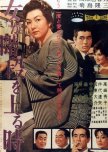
This review may contain spoilers
"The time to decide was looming"
When a Woman Ascends the Stairs showcased Takamine Hideko's acting range as Yashiro Keiko, a bar hostess who had come to a crossroads in her life. Elegant with a backbone of steel, Keiko struggled endlessly to do the right thing when doing the morally gray thing could deliver her dream of buying her own bar far quicker. Director Naruse never took it easy on his characters and Keiko was no exception, watching her courageously face setbacks with a concentrated determination was highly compelling."I hated climbing those stairs more than anything."
Keiko worked upstairs in a bar that catered to businessman entertaining their clients. The men liked having a pretty woman or two around as they made their deals. Because she was a widow in her 30's the younger hostesses and even the patrons called her Mama. Keiko and the bar manager (charismatic Nakadai Tatsuya) also dealt with the business side of collecting from the companies and businessmen who owed on their tabs. Keiko hated her job, but needed the money as she also provided for her mother and adult brother and young nephew. She had three choices to better her life—get married, buy her own bar, or find a patron to help supplement her lifestyle. At her age, she didn't think the first one was a possibility. Buying a bar required more cash than she had. The third one was a form a prostitution she wasn't ready to submit to.
"The best go by cab, the second-rate take the train, and the worst go off with their customers."
One of the younger women had left and started her own bar, but she found herself swimming in debt with creditors hounding her every move. Another hostess married and moved away. A third young woman had no problem exchanging sex for money. Wealthy customer Goda offered Keiko the capital to start a bar if she would be his mistress. A likeable customer proposed to Keiko and for a moment she was happy until she realized he had not been truthful with her. The man she had fallen in love with was also living a double-life. Every time it looked like she might have found happiness or an answer to her problems, fate was waiting around the corner to trample her. Despite always seeking to do the right thing she was seldom rewarded for it. This was Naruse, not Ozu, so not surprisingly the characters fought to survive and make a living, let alone find love. He preferred a more pessimistic worldview where obstacles confronted or crushed his characters at every opportunity. Whether it was more realistic is up for debate, but the conflicts and character growth did make for an entertaining film.
"Women working in the Ginza fought desperately for survival…it was a battle she couldn't afford to lose."
Keiko strove to get ahead financially only to have her family continually siphoning off her savings. She didn't enjoy drinking but did so to make money. She despised drunks pawing at her, but she tolerated them to make money. What she wasn't willing to do was to sell herself. During one particularly poignant moment near the end of the film, she revealed her character's strength and resolve in a captivating way that left her integrity intact.
"There are limits, even in business."
Beautiful Takamine Hideko brought an elegant grace and strength to Keiko. I thought she did a wonderful job of conveying a wide gamut of emotions, subtly and effectively. When she emoted more forcefully with anger or sorrow, it was believable and organic to the scenes. Mama was a complex character who wasn't perfect, she made mistakes but she also took care of the people around her. She knew when to draw the line with problematic behavior and when to walk away. She didn't rail at the patriarchal society that limited her options or the widening division of the classes. Keiko took her blows, dusted off her kimono, got back up and kept moving forward even when life refused to offer her something better. As the people around her encouraged her to loosen her grip on her integrity, Keiko stayed true to who she was. After weathering numerous personal storms and losses she refused to buckle. Whether it was acceptance or resignation, she continued to walk up the stairs she dreaded, paste on a fake welcoming smile, and somewhere deep inside hope that her efforts would grant her the future she dreamed of someday.
"…the trees that line the streets can sprout new buds no matter how cold the wind. I too must be just as strong as the winds that gust around me."
8/1/23
Was this review helpful to you?

This review may contain spoilers
"Sis, daringly keep going ahead"
Red Sorghum was the film that launched Zhang Yi Mou's and Gong Li's careers. For his directorial debut, Zhang's movie won many awards including the Berlin IFF's Golden Bear Award for Best Picture. Saturated in deep colors and textures and accompanied by music that fit every scene perfectly, this 1987 film showed what the world was in for with his mesmerizing style of moviemaking.A radiant 22-year-old Gong Li played Jui/Grandma, a bride being carried along in a palanquin to be married to a 50-year-old man with leprosy. Jiang Wen as Yu/Grandpa was the expert carrier. The men sang a bawdy song of her fate as a young "ugly" bride marrying an old leper. As she bounced up and down in the small litter you could feel her nausea growing. When they reached the wild red sorghum fields a bandit attacks the group, but the men are not so meek as to let him take the bride into the fields. After the wedding she is allowed to return home with a donkey as a wedding gift/payment to her father. Along the way she is once again set upon, this time alone, and Jui runs frantically through the wind driven sorghum chased by her assailant. The masked man turns out to be Yu. He stomps the sorghum down into a verdant bed with all the gentleness of a wild beast. It was difficult to tell whether Jui initially gave her consent, I hope so, because afterwards, she fell in love with Yu. On her return to her legal husband, she's told he was murdered by an unknown killer. The workers prepare to leave but she convinces them to stay in a profit-sharing business. A drunken Yu shows up and she kicks him out. She's kidnapped for ransom by other bandits. After her return, Yu pees into the wine crocks as if marking his territory and carries her off like a sack of potatoes. Instead of ruining the drink, it is now transformed into an exquisite elixir and business booms.
Yu was often portrayed as a primitive male, dirty and brash, and Jui rarely called him on it. Thank goodness, Zhang displayed a more favorable view of women in future films. It was also a credit to Jiang's performance that Yu was considered even somewhat likeable. With the exception of her relationship with Yu, Jui came across as a competent and independent woman.
Jui gives birth to Yu's son and all seems well. It's a magical winery where anything can happen. Life is often lusty and humor filled. Then the movie switches from How I Met Your Mother to The Deer Hunter. The Japanese invade the peaceful village and one of the villagers is flayed. The film ends in a blood bath, as if everyone had gone swimming in a vat of the red sorghum drink under an eclipse. ***
I am a big fan of Zhang Yi Mou's style. His movies are luscious to drink in, the lighting, sets, costumes, and props are all feasts for the eyes and this one was no exception. I would really like to have a set of the drinking pottery, they were beautiful. Few people can capitalize on scenery as he does, color-soaked fields and skies were suitable for framing. A young Gong Li already exuded the power and sensuousness of a grown woman. Her character took over the winery, mothered a child, and called men to battle quite believably. With a running time under 90 minutes, the characters were not well developed, we know little about them except what we see on the screen. Gong Li's and Jiang Wen's exceptional performances helped me to overlook some narrative issues. The change in mood was abrupt and jarring when the shocking violence erupted, I suppose much like in real life when horror and tragedy hit out of the blue.
Red Sorghum showed the fierce tenacity of the rural people in northern China as they faced a variety of adversities and most times were able to create victory and song out of difficult situations. The film was imperfect, but very much worth the effort to experience the premiere stunning collaboration of Zhang Yi Mou and Gong Li, one of the best partnerships in filmdom.
6/30/23
*** A word of warning, there were disturbing scenes. Animals being butchered and skinned were shown up close as well as the human flaying which I could not watch. There were two urination scenes as well. And depending on how you interpret it, a possible rape.
Was this review helpful to you?

This review may contain spoilers
Bride for Rent drags out a number of tropes and scatters them about the drama. If you don’t look too deeply it’s a sweet romcom. Dig a little deeper and it unearths one of the more dangerous romantic tropes. Rocco is turning 25 and under the impression he will receive his trust from his grandmother. He’s a jerk to the women he dates and dictatorial to his buddies whom he has gone into business with. Grandma has been watching and throws a marriage clause into the trust. Regardless of the money he will come into none of his ex-girlfriends will marry him because of the way he had treated them. Along comes impoverished actress Rocky and he hires her to pretend to be married to him.
There’s a reason Rocky doesn’t make much money acting, she’s simply not very good. I’m not sure if that was in the script or a flaw on the real actress’ part. Grandma insists on a church wedding and Rocky balks. Grandma takes her aside and tells her it will be a fake church wedding but she needs Rocco to grow up and learn to love and trust again and be kind again and Rocky is just the person to teach him. At this point the forced cohabitation high jinks begin.
I was able to play along with the jerky playboy wanting to put one over on grandma so that he’d get his money. I had a harder time with the concept of a man being completely changed by a woman. Too many women believe that tired trope and have butted their bloody head against a wall trying to make an unkind man kind.
Most of the cast were capable enough actors with the exception of the female lead. When she was calm she was a pleasure to watch. Too often she came across like she’d had too much coffee with too much sugar and artificial colors.
As long as you don’t fall like Rocky did for the “you can fix a jerky playboy” trope and can look over her overly enthusiastic performance it’s almost watchable. Even the actor who played Rocco looked liked he would rather be somewhere else on several occasions.
12/8/22
Was this review helpful to you?
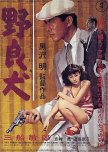
This review may contain spoilers
Misfortune makes or breaks you
Misfortune makes or breaks you, depending on the choices you make. Kurosawa takes on postwar Japan's class divide and poverty and the choices people have to make in the face of destitution. Mifune Toshiro and Shimura Takashi star in one of the first buddy cop movies of all time. Mifune as the beleaguered rookie and Shimura as the smooth mentor made a great partnership.The plot stems from rookie Murakami's service revolver being pickpocketed on a crowded bus. He feels responsible and despondent over its loss. His supervisor refuses to let him give into despair and ultimately teams him up with the experienced Sato. His gun is used in several crimes causing him greater grief as the crimes and violence intensify. This is no brainless, violent cops and robbers film. Kurosawa gives the faceless villain, Yusa, humanity even with the bad things he's done through the witness of other characters. The problems of rampant poverty and crime are highlighted as well as the problems soldiers coming home from the war faced. Murakami and Sato do old fashioned detective work, following the clues and often waiting and being persistent. Kurasawa even has the detectives track a Yakuza at a filled to capacity baseball game where they have to put the welfare of the crowd over their own goals.
I hesitate to write too much about the story after trying and ending up with three pages which hit my editing floor. This was a beautifully made film with amazing framing and compositions. Kurosawa wasn't afraid to linger over shots, especially when they were gloriously put together. Nakai Asakazu did a stunning job with the cinematography. The lighting was especially complex in many shots. There was masterful work going on with this film.
Tokyo was in the middle of not only a crime wave but also a heat wave and you could almost feel the sweat streaming down the characters' backs. As the film nears the culmination the clouds darken and the torrential rain that breaks through also symbolizes the unleashing of the greatest brutality the characters would face as they finally come upon their quarry.
At one point in the movie, Sato and Murakami have a deep conversation at Sato's house. Sato sees Yusa as simply a bad guy who must be caught. Murakami sees himself in Yusa. They both came home from the war only to have their knapsacks stolen on a train. Yusa chose to become bitter and turn to crime, Murakami chose to work on the problem by becoming a policeman. “They say there’s no such thing as a ‘bad man,’ only bad situations,” Murakami said. Sato reminds him of all the damaged sheep left in the wolf's path. A peek at Sato's children sleeping reminds the viewer that children represented the future of Japan, pure and vulnerable who would face their own choices. Would they give into materialism and crime or take the more honorable path?
A scene with Yusa's girlfriend, Harumi, and her mother showed the differences in the generations. Her mother dressed in the wartime austere clothes while Harumi dressed in a far more decorative dress. When the reason Yusa needed the gun to begin with comes to light it highlights the great gap between the classes and how a dress in a window could cause deep seated resentment.
Mifune Toshiro gave a performance that reached several octaves. Always a live wire, you could see his energy coiled and unleashed on occasions as he dealt with the anguish of his gun being used in crimes. He was the perfect Kurosawa hero, tortured and honorable. When he finally faces his alter ego with 3 bullets left in the chamber and a vicious fight takes place, leaving us to wonder who is who, we are reminded not only of their similarities but also the differences in the choices they made. Shimura Takashi was the levelheaded mentor who saw through people and picked up on clues while his pupil was wrapped up in his own head and feelings at times. He gave an incredibly cool performance as the mature detective who knew he could often get what he wanted with honey and smooth words.
The only drawback for me was a lengthy 8-minute part of the film when Murakami goes undercover in the black market for a few days trying to find someone to buy a gun from. Honda Ishiro (Godzilla) followed Mifune around with a hidden camera discreetly filming the homeless and people selling and trading in the market. At one time Tokyo had 60,000 black market vendors. Even during the war people had to use them to find food and clothes. Like a bamboo, people would sell layers of clothes and personal items to get what they needed. After the war people were starving, some to death. He also showed some of the burned-out buildings leftover from the bombings. Though people were dependent on the black market to survive it also bred the Yakuza with gangs having their own territories. Kurosawa apparently had a difficult time leaving much of this footage out, but it felt like it would have been more meaningful if he had culled it down. Japan's economic recovery wasn't far away so this was an historical time capsule of how the people had to live which I appreciated being able to see even if I wish he'd edited it more.
I could talk about his film at length but will leave you with this. The film discussed pertinent social dilemmas and existential questions. The acting was skillful and artfully balanced. The frames, lighting, sets, and composition were skillfully done. It could be slow in places, but Kurosawa also knew when to hit the accelerator and when to brake, when to ramp up the tension and when to take a breath. If you are prepared to be patient when the movie slows and lingers, I can easily recommend this gem.
10/7/22
Was this review helpful to you?
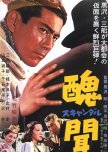
This review may contain spoilers
"If you don't let what's in your heart out, you'll choke on it"
Kurosawa calls upon his characters to stand up for what's right even if the odds are against them in Scandal. Honor, weakness, redemption, and a rebel painter on a motorcycle all figure into this film.A young, handsome Mifune Toshiro played the painter Aoye Ichiro who rebelliously road his motorcycle everywhere. When he offered a beautiful singer, Shirley Yamaguchi as Saijo, a ride back to her hotel in the mountains where he was also staying, the dominoes were stacked. The paparazzi had followed her to the hotel where she refused to have any pictures taken. In a genuinely chaste moment, the two were photographed together in what could have looked like an intimate scene. The tabloid wrote a salacious story about the two having a romantic getaway which went viral in a 1950's manner. When one of the photographers asked if it was okay to write a false story, the boss told him, "It doesn't matter if it's true. Once it's in print the public believes it." And therein lies one of Kurosawa's themes-the unscrupulous press who valued sales over truth and a gullible public who would believe it.
Ichiro decided to sue the magazine for the trouble brought down on himself and Saijo. Another theme-understanding the difference between right and wrong and standing up for what was right regardless of the consequences. In stumbled Hiruta Otokichi (Shimura Takashi) a lawyer begging for the job of representing him and the story became something else. Ichiro decided to hire Hiruta after meeting his tuberculosis bedridden daughter, a purity of love and light. The story now became focused on Hiruta's weakness. Weakness for money, betting, drinking, and in general doing all the things he considered loathsome...including selling out his client. Another theme-the disintegration of the ability to tell the difference between right and wrong in post war Japan. The film also began to center on Hiruta's weaknesses more than the court case and the gradual road to his redemption guided by his daughter and a motorcycle riding artist.
There were times in this film I thought I was watching a version of It's a Wonderful Life only with a down and dirty Clarence. It felt Capraesque in several places. For a Kurosawa film it was more sentimental and predictable than I would have thought. The shift from the story focusing on Mifune and Yamaguchi to Shimura's character was jarring. I normally enjoy Shimura's performances, but his hang dog, self-castigation went on too long for me. He would perfect this "poor me" performance for Ikiru. Fortunately, there were some lighter moments to break up all of his self-recriminations. As lovely as they were, Ichiro and Saijo came across rather one note and too perfect. Even with his habit of gunning his motorcycle and painting nudes, Ichiro practically squeaked when he walked, he was so clean and honorable.
The harsh commentary on the tabloids, moral disintegration, and the judicial system was not subtle. There was the obvious lament that while the fake news stories sold in the tens of thousands, Ichiro had trouble selling his actual works of art. Ultimately, the focus became about Hiruta's weaknesses without condemning them, simply exploring them and his reasons for them. Finally, watching as his lifeline was assembled, one that in the end might condemn him but set him free at the same time was worth rooting for. It takes a lot of courage to become a shining star reflected in a polluted pool of water.
I enjoyed this film, but not as much as I hoped I would. It was definitely worth watching for seeing Mifune Toshiro transporting a decorated Christmas tree on the back of his motorbike.
10/5/22
Was this review helpful to you?
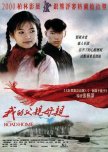
This review may contain spoilers
Love is found on The Road Home
The Road Home tells of a simple love story, one that is simply beautiful and sincere. It is also a look at how the past informs the present and ties those in memory together.Yusheng is a grown only child returning to the snowy mountain village where he was raised upon receiving the news that his father has died. His mother will not be consoled until he promises to have his father's body returned to the village from the nearest city by foot, a traditional custom enacted so that the dead can find their way home. As he discovers, it will not be easy, for the only people left in the village are too old or too young to be of help. He perseveres for his mother's sake and as he does he reminisces about his parents' love story.
The present is told in black and white, but as the past opens up it was like leaving Kansas and stepping into Oz. Director Zhang saturated each scene in color, making every shot worthy of being framed. Zhang Zi Yi as Di, in her first role, was ethereal as the eighteen-year-old girl, wearing pigtails and a bright red coat. The village was building its first schoolhouse and it was love at first sight when Di laid eyes on the schoolteacher who rambled into town. The small village was Luo's first job, though well educated he hadn't been able to find work until someone brought him into the mountains. On the road Di would walk the extra distance to the well by the schoolhouse just for the chance to hear his voice. On the road she would watch him walk children home and then stealthily follow him on his return until the day she emboldened herself enough to meet him. When Luo had to leave because of a political offense, Di waited for his return on the road.
Little happens, but even a broken bowl or a lost hair clip have meaning. A bowl of dumplings carried by a girl racing through the hills, propelled by young love has more meaning than a thousand sonnets. The villagers with their traditional roles look out for each other. Di and Luo have few words of dialogue but their earnest looks and actions speak volumes. Yusheng's voice over narration is almost like he's reading a book as he recites their story that he and the other villagers know by heart.
Zhang Yi Mou's use of light and color never fail to mesmerize me. He gets the most out of natural scenery whether it is a golden forest or snow covered fields. He also knows when to hone in on his actors and Zhang Zi Yi made it easy for him with her lovely expressive face. There was no doubt his camera loved her face and movement as Di ran through the mountains for a glimpse of Luo. The softly romantic music enhanced the picturesque scenes and gently developing story of true love.
The film revolves around Di, Luo and the cherished schoolhouse, both in the past and in the present. Traditions and customs thought forgotten give meaning to many in the present as Luo is brought back on The Road Home to be laid to rest. Love is both lost and found on The Road Home. Remembrance and family ties are renewed on The Road Home. This film resonated with me as Yusheng came to terms with life away from the village and the importance of the past as he traveled The Road Home. Quietly simple, the path on The Road Home is one worth traveling.
9/21/22
Was this review helpful to you?
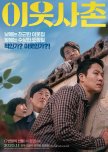
This review may contain spoilers
Sometimes you have to risk all to have a safer and better life
When you open up your mind, you never know where you will meet your Best Friend. Set in the tumultuous 1980's in Korea, this film was very loosely based on real events and presidential candidate and activist Kim Dae Jung.During a time of martial law, student protests, brutal interrogations and arrests, Lee Ui Sik finds himself and his family under house arrest for being in opposition to the ruling power. As the intelligence chief states, anyone not like himself is a "commie" and "commies" are detained, or deported, or killed. The chief calls upon Dae Kwon, a part-time patriotic helper, to move in next to the Presidential candidate, Lee Ui Sik and his family, who are serving under house imprisonment and surveil them. The goal is to prove Lee is a commie with ties to North Korea and finally rid themselves of him. Through a series of comic adventures, Dae Kwon and Lee meet, even ending up in a bathhouse with Lee's son. Though on opposite sides, both men are lonely and in need of friendship. The more Dae Kwon listens in on the upright Lee and the more he sees how the current government covers up its own dirty work, he slowly begins to change his mind and his ideas.
Like many Korean movies, Best Friend's mood changed on a dime and went from comedy to tragedy, back to comedy and a host of other emotions. Some of it worked and some of it didn't. It could be uneven and even jarring at times, but it was never boring. Veteran actor Kim Byung Chul as Dae Kwon's assistant was the catalyst for many of the laughs. Lee's family played it dramatically straight for much of the movie. Though a few scenes went fully into melodramatic territory, the final act revealed the dangers of attempting to change a corrupt regime.
Jung Woo gave a complex performance having to work both the comedy and melodramatic beats of the film. Dae Kwon not only dealt with spying on his neighbor, but he was also a husband and dad and not a very good one. Through his clandestine observations, Jung Woo shows Dae Kwon's epiphanies as old beliefs and habits make way for new ones. Scandal plagued Oh Dal Soo was fine as the beleaguered candidate having to make decisions even as he faced personal crises and death threats.
I have to give Korea points for being willing to look at difficult times in their history and work through them artistically. Though a fictional work, bordering on fantasy at times, Best Friend did push forth the idea that in order to change society even when it might come at great personal cost, it had to be done for the good of all and future generations.
With the themes of enemies to friendship, sacrifice for the greater good, and personal evolution, Best Friend, if not inspiring, could be funny, entertaining and even heartwarming. Not a perfect film, it was too erratic and sometimes heavy-handed, but one worth trying sometime. (7.75)
8/24/22
Was this review helpful to you?

This review may contain spoilers
The Monkey King 2 takes place 500 years after the Havoc in Heaven, a sequel to The Monkey King starring Donnie Yen. In this film Aaron Kwok plays the hairy hero to good effect. The Monkey King 2 boasts a strong cast with Feng Shao Feng as a righteous monk and Gong Li as a deadly and deadly alluring demon. The story didn't always serve them well but it was entertaining. When a bumbling monk accidentally unleashes the Monkey King, Sun Wu Kong is given the task by the goddess of accompanying the monk to a temple and retrieving some holy scriptures. If he accomplishes the task his binding golden crown will be removed. Standing in their way is the White Bone Demon played to perfection by the ethereal Gong Li. She has several creepy demons to help her and if you have a fear of snakes, best to avoid this movie or use the fast forward button in some scenes. Another triggering thing is the death of children and torturing of children, let the viewer beware.
This version of the Monkey King is the most understated I have seen, and to be honest a relief. Some actors take their monkey performance over the top. Maybe all those years trapped in the Five Elements Mountain gave Wu Kong time to reflect. I quite enjoyed Kwok's performance which was emotionally compelling even through the hair and makeup. Sheng's monk could be overly righteous at times but did bring up the ethics of killing even when it meant self-preservation.
The side-kicks weren't fully developed though Pigsy did give some comic relief. And the big blue guy, Sand Demon Sha Wujing got to show his stuff in a battle with a near endless supply of skeleton warriors. As I've stated previously Gong Li made the White Bone Demon a formidable and believably malevolent villainess.
Sammo Hung choreographed the fight scenes and the high flying fighting was right up his alley. This was wire-fu on steroids but also quite fun and visually interesting. When dealing with an array of demons and other supernatural characters in a fantasy film the super-powered fighting made sense.
The sets, costumes, and CGI were all top notch. The final battle was creative and something to behold. The drawbacks for me, were some lulls in the story and an ending scene that put the onus on the Monkey King to kill when throughout the entire movie, the righteous monk had berated him for killing even to save lives. I enjoyed this Monkey King more than most in this genre, even with its flaws it was an entertaining movie.
Was this review helpful to you?

This review may contain spoilers
The shadow shapes everything. The light illuminates it.
The current synopsis tells the entire story of the special on Katsushika Oi so I won’t go much into the story for this review. I wanted to write something to highlight this interesting special to draw attention to it.Oi and her famous father, Katsushika Hokusai, are at the center of this special. Though their relationship isn’t delved into very deeply it does show some of the conflict and comradery between them. Two artists obsessed with becoming better, letting everything else fall by the wayside. Along with their artistic disciplines there was a glimpse into their domestic habits. Neither cooked or cleaned, moving when the place became too cluttered.
The more Oi observed the world, the more interested she became in vibrant colors and the play of light and shadow. A fire could give her inspiration for creating new colors to work with. How much of Hokusai’s work she contributed to, especially after his stroke and/or palsy, may never be known, but her work can be seen in some of his. The ten surviving paintings directly attributed to her show a stunning use of color and shadow and also a different perspective than was often displayed at the time. This special attempts to understand her thinking as she worked through her own artistic beliefs and style.
The production values were quite good. The sets, costumes, and music all helped this viewer become emersed in the artists’ world. Miyazaki Aoi gave a wonderful performance as the daughter as consumed with painting as her famous father. Nagatsuka Kyozo’s portrayal of the wild haired artist and father was also quite good. Matsuda Ryuhei gave a nice turn in the supporting role of Keisai Eisen, an artist with whom Oi has a flirtatious friendship. It would have been more interesting for me if they could have gone deeper into what it would have been like for a single woman of advancing years staying unmarried and working as an artist with her father. All in all, as a brief look at Oi’s life and work, I found it educational and entertaining. I thought they did a good job of not making it about the more famous men in her life and giving her own artistic journey the proper attention. Even so, Oi may have been the focus of the film, her story couldn’t be told without her father. Until a light was illuminated on her own significant talent she worked in his shadow. Fortunately, a light did find the colorful storytelling in her own paintings.
Was this review helpful to you?

 33
33 98
98 7
7





















